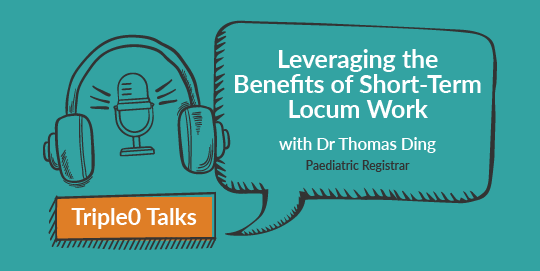Triple0 Talks.
The Podcast
Hear stories of doctors, GPS and medical professionals and their experiences moving to live and work in New Zealand
Latest Podcasts
Browse our range of resources for doctors below and please reach out to one of our friendly medical recruiters with any questions.
Learn About Life As A Medical Specialist In NZ
Whether you're a doctor, pharmacist, dentist, anaesthetic technician, nurse, or allied health professional, this page provides information to help you navigate the process of moving your career to New Zealand.
Explore Exciting Medical And Healthcare Opportunities In Beautiful New Zealand








